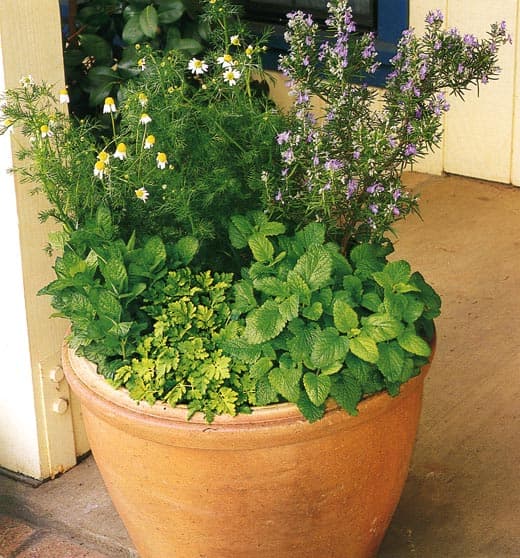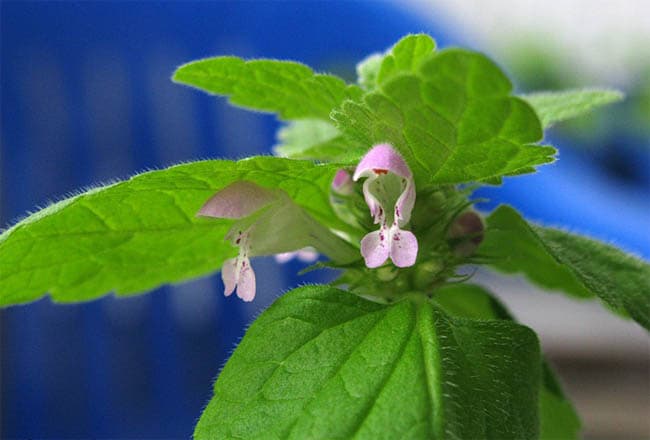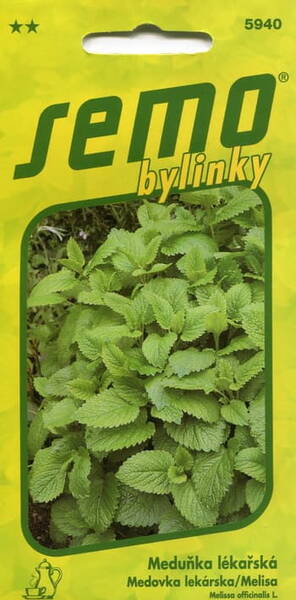Delicate, refreshing aroma!
A spicy, essential oil-bearing, perennial, cold-hardy plant. The plant is branched, with erect, pubescent stems. The stem is erect, branched, 50-100 cm tall, and the leaves are ovate.
It has a refreshing lemon aroma and a spicy flavor. It is used fresh and dried as a seasoning for various dishes and added to drinks. It has antispasmodic, analgesic, wound-healing, and sedative properties. Light cover is recommended for winter. Suitable for indoor cultivation.
Valued for its high content of organic acids, carotene, and essential oils, young shoots and leaves have a pleasant lemon scent and a slightly bitter taste.
Lemon balm is used in cooking as a spice and seasoning, and also as a medicinal plant, in the form of infusions and compresses.
1.0 g = 1900 seeds.

Agricultural technology.
Sowing : Sow seeds outdoors in early spring (April-May). Sow in rows (40-60 cm between rows). Thin the seedlings in the bed to 25-30 cm. Sow for seedlings either superficially or at a depth of 0.5 cm. Seedlings emerge in 20-25 days. (To obtain 100 plants, sow 0.3 g of seeds.)
When using the seedling method, seeds are sown at the end of March in boxes in a 5x5 cm pattern. Plants are planted in open ground at the age of 70 days, in late May in a 60x30 cm pattern.
Seedlings are planted in the first half of May. The feeding area is 30-40 cm. Lemon balm begins to bloom in its second year.
Lemon balm is grown in fertile, well-drained, loamy, non-acidic soils. It can grow in the same location for 10 years.
Care : consists of loosening, weeding, watering (after cutting the greenery) and fertilizing.
Harvesting : It is recommended to begin harvesting the greens in the second year. Two to three cuttings are made per season: the first in June, the second a month later.

Lemon balm. Bot. syn.: Melissa cordifolia Pers.
* Melissa is an exceptional honey plant.
It's no coincidence that the Greek name " melissa " means honey. Melissa's leaves and stems contain essential oils, tannins, large amounts of vitamin C, provitamin A, caffeine, and other organic acids. The fruits contain up to 20% fatty oil. Melissa essential oil is prized in perfumery. Young leaves and shoots, cut before flowering, are used fresh and dried. Arabs believe that an infusion of fresh young lemon balm shoots " fills the heart with joy and happiness ."
Melissa has medicinal properties. Tinctures made from it are used for general weakness as a tonic, gastrointestinal tract and respiratory ailments, mild forms of bronchial asthma, heart problems, headaches and cramps, and as a sedative, diaphoretic, and carminative.
Melissa can be used around the home. Dried lemon balm leaves repel moths, and mice also dislike its scent.
Where lemon balm grows, plants are almost immune to fungal diseases. Dried lemon balm leaves and shoots can be sprinkled over tomatoes when storing them in crates. This preserves the fruit significantly longer than with conventional storage.
Melissa is not only an effective herb but also a pleasantly scented and delicious plant. Because of its scent, it's also called lemon balm. It doesn't grow wild, but is cultivated in gardens in well-fertilized, sunlit soil. Blooming lemon balm attracts large numbers of bees. When harvesting your own, it's crucial to gather the leaves before they bloom, as they no longer have the same pleasant aroma after flowering. Fresh lemon balm leaves are a wonderful addition to salads, sauces, soups, and vegetable dishes, making them worth a place in the garden for this reason alone.
Only the leaves are used medicinally. They contain primarily essential oils, as well as tannins, bitter substances, and flavonoids.
Melissa is used as a tea, tincture, and bath additive. Melissa tea can help with nervousness and sleep disorders. It should be taken in the following dosage: three teaspoons of leaves per teacup. Be sure to let the tea steep for five minutes, covering the cup or teapot with a lid, and then shake off the condensation back into the tea. Essential oils are essential for the sedative and antispasmodic effects; they are extracted first during brewing and evaporate immediately without a lid.
Melissa is especially effective when stress has affected the stomach and digestive organs. It relieves feelings of heaviness and occasional cramps, and also stimulates appetite. Therefore, for such complaints, drink one to two cups of lemon balm tea daily.
Melissa leaves are easily combined with other sedatives, so they shouldn't be missing from any calming or sleep-inducing tea. For children, a single cup before bedtime is often enough to relieve anxiety and turn exam fears into pleasant dreams. The effectiveness of a full lemon balm bath cannot be underestimated. Those who can afford it should take it at least two to three times a week before bed.
Even if you don't have the symptoms mentioned, but just had a stressful day or a rough car ride and want to feel better again, a lemon balm bath is just what you need. Young children, who are very active and excitable, noticeably calm down after a lemon balm bath.















